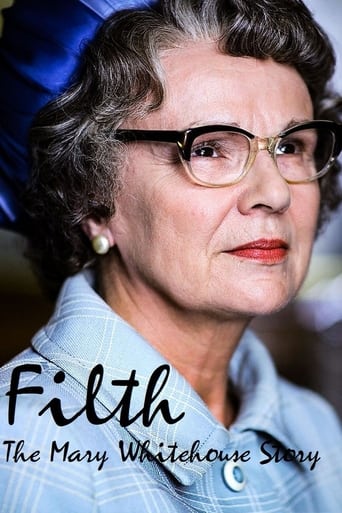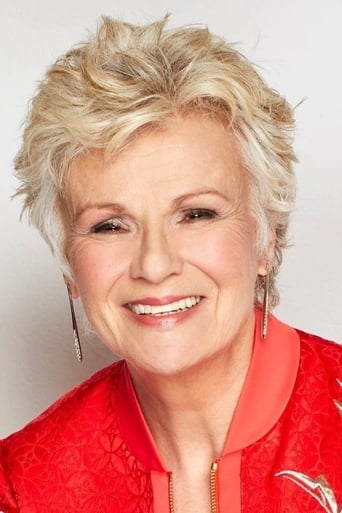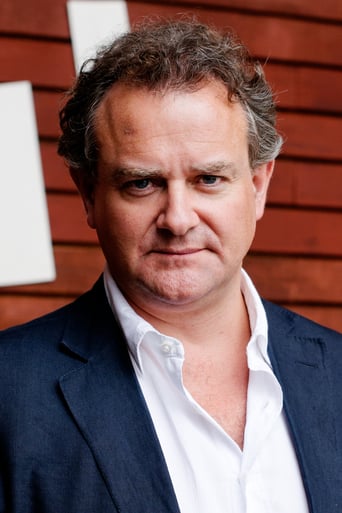

Filth: The Mary Whitehouse Story (2008)
The story of the rise of morals crusader Mary Whitehouse in the UK in the 1960's.
Watch Trailer
Cast


Reviews
"Filth" just happen to come on after another show - I didn't intend to watch it, but the opening song contrasting with the prim-looking lady on the bicycle so intrigued me that I ended up watching, and I'm glad I did.This is a story about Mary Whitehouse, a mother, wife and school teacher, who is outraged by the Director General of the BBC's (Sir Hugh Carleton Greene)new programming. It's the beginning of the Age of Aquarius, and the "new morality," is making its way onto TV during teatime, and Mary Whitehouse will have none of it.This is a very successful television movie in that every main character was three-dimensional. Mary starts out as a sympathetic character who eventually turns into a Master Censor as she sends letters to the beleaguered Sir Hugh complaining about two unkind characters in a children's television program. Sir Hugh also takes a turn, as he starts out an arrogant elitist who won't even meet with Mary (a "nutter") to a defender of free speech who simply can't withstand her repeated assaults.Beautifully told, acted and cleverly directed, "Filth" is well worth a watch.
This account of the transformation of an ordinary suburban mum and art teacher into a controversial national figure is a lot better than it might have been. Julie Walters as Mary captures her ordinariness and her determination. She is much helped by Alun Armstrong's subtle performance as Mary's supportive if sometime baffled husband Ernest. Hugh Bonneville though at times rather Basil Fawlty-ish as the progressive but arrogant BBC director-general Hugh Greene provides an admirable foil (they never actually meet).Mary Whitehouse started her campaign to clean up television (originally unfortunately named "Clean Up National Television") after seeing a rather dull discussion program on pre-marital sex broadcast by the BBC in the early evening. Despite widespread opposition she developed a taste for being in the public eye, and was an active promoter of TV censorship for the next 30 years. The film credits her with forcing Greene's resignation, though others claim the real issue was Greene's failure to get along with Lord Hill, the oleaginous BBC chairman after 1967. Certainly Greene's philosophy on broadcasting was completely opposed to Mary's, and it has to be said that it was partly due to her that the BBC became less adventurous in the face of her attacks, some of which were downright silly, the attacks on "Dr Who" and the Beatles's lyrics for example. With all respect to her son Richard, who has a review on this page, she may have been serious and sincere, but she represented and aroused the forces of bigotry, ignorance and prejudice. The worst that can be said of Greene is that he did not handle her very well. Later directors-general, including his immediate successor Charles Curran were better at it. Even so she had a chilling effect on British television.This program goes fairly easy on Mary and does not fail to point out that Greene and other opponents often over-reacted. She had imitators elsewhere, Patricia Bartlett in New Zealand and Fred Nile in Australia for example, and of course the US is full of anti-smut crusaders. Unlike the US, Britain's media is rather centralized – the BBC had a monopoly in TV until 1956 and there was a duopoly with ITV until the 1980s – and this gave someone like Mary unwonted influence. The atmosphere of the sixties is wonderfully re-created and the BBC has to be congratulated for its even-handed telling of a story very painful to some broadcasters.
Mary Whitehouse played by the divine Julie Walters CBE could have been silly, over-reacting, or just a caricature of a woman who fought and won in her own mind. The film is quite a tribute to a woman who caused a lot of trouble in the 1960s regarding television content. Whitehouse is a schoolteacher, mother, and wife to Ernest. They live not in London but in Wolverhampton and she is concerned by the explosion of sexuality on television through the BBC which is national television. She gathers and recruits quite easily mostly housewives who have the same concern. All she wants is some time with the director of the BBC which was Sir Hugh Carleton Greene who is portrayed a chauvinistic boss and unlikely character. Whitehouse has her moments like when she telephones the BBC regarding a sketch spoofing her husband involved in a car accident as crossing the line. There is more to it. Despite all of the hatred and vulgarity in the letters and telephone calls, Whitehouse is persistent in trying to clean up the filth in national television.
Mary Whitehouse, who campaigned tirelessly to rid TV and cinema of the type of stuff I thrive on, is given a fair shake in "Filth - The Mary Whitehouse Story". Julie Walters, of "Educating Rita" fame, plays the woman as a well-meaning mother and educator who became increasingly appalled by any entertainment that didn't mesh with her puritanical take on life. Outraged by the new sexual permissiveness of the 60's, as depicted by the BBC, she waged a decades-long campaign that successfully put the brakes on much of what would now be considered typical TV fare for teenagers and adults. Most annoying aspect of this woman was that stupid people (plenty of them) bought into her moralistic hogwash and happily signed her petitions to ban or restrict anything she deemed corrupting; even "Dr. Who" did not escape her criticism. Despite what could have been a dour, hateful piece, there is a comical edge to "Filth..."that is represented by Mary's ongoing battle with the BBC's Sir Hugh Greene (Hugh Bonneville), a fellow I found immensely likable for his blatant rudeness, lechery, and foul-mouthery, not to mention his undying desire to deflect the missiles of censorship. Bonneville is great as the larger-than-life Greene and adds great bounce to the drama. The world is still filled with Mary Whitehouses who want to censor our movies, ban the filth we love so much on the internet, and launch witch hunts and obscenity trials ("Good Morning, Paul Little!") against unsuspecting artists. The difference between today's Mary Whitehouses and the original is that Mary, a card-cartrying prude, was at least sincere and consistent in her moral outrage. Today's opponents of "filth" are called politicians and preachers, and their outrage is fueled by their lust for votes, not a "better" world.




